Prevent Bone Loss in Jaw with Dental implant from Morris Family Dentistry
Dentistry has a dirty little secret: bone loss. Did you know that once a tooth is extracted, the jaw bone in that area begins to shrink? Most of this bone loss happens in the first six months after tooth extraction, but it will continue at a slow rate for the rest of your life.
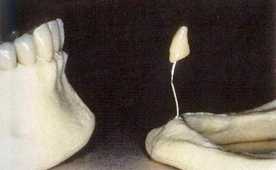
This photo contrasts a lower jaw with teeth on the left, and a lower jaw on the right that had all the teeth extracted, followed by 20 years of bone loss. When the teeth are present, the roots gently stimulate the bone during eating. The bone stays. Once the teeth are gone, the stimulation is gone, and the bone resorbs, gradually disappearing over the years.
A physician treating osteoporosis gets uptight about losing 3% of bone mass during menopause. As a dentist, I’m officially flipping out about losing 75% of the jaw bone!
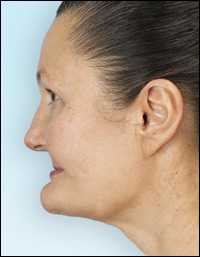
According to the American College of Prosthodontics, 35 million Americans have no teeth, and 178 million are missing some teeth. All of these people face the problems associated with bone loss.
As the jawbones shrinks, the lips sink in, the corners of the mouth droop and the chin protrudes. For women, this is called, “witch’s chin.” For men, it looks like a “bitter beer face.”
Bone loss in the jaws will paint you into a corner. Dentures need to be relined every few years to fit the shrinking jaw bone. With less bone support dentures become unstable and harder to eat with, shifting and causing sore spots. Eventually, bone loss can expose nerves, making dentures painfully impossible to wear. If you can’t wear a denture in the last few years of life, your nutrition will be poor and your grandchildren will only know you with a toothless smile. Poor nutrition in the later years may actually shorten your life! So, please, for the love, can we never, EVER, think it’s okay too, “Just pull ’em all and give me a denture,” unless that is absolutely the last option available?
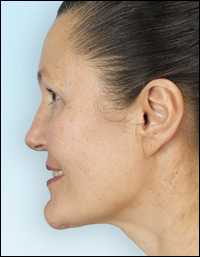
Dental implants are the answer to bone loss. They are the only tooth root replacement in dentistry. (A bridge or partial denture rests on the gums only and don’t replace the missing root.) Having a dental implant in the bone stimulates the bone like a tooth, and the bone stays. Dental implants also keep a denture from moving around. If you have dentures, I highly recommend attaching them to dental implants to stop bone loss.
If you’re missing fewer teeth, or only one, have it replaced with a dental implant soon after extraction. This will prevent bone loss and reduce strain on the remaining teeth.
Consider this case:
A front tooth was missing long enough that the area suffered from bone loss. Contrast the thickness of the jaw bone where teeth support the bone (measured with the blue lines) to the thickness of the jaw bone without teeth (red line):
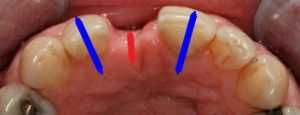
There is not enough bone to place a dental implant, so a bone graft is done to restore bone volume:
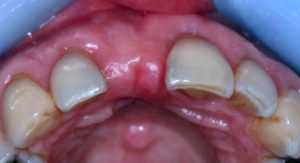
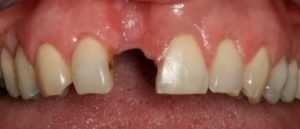
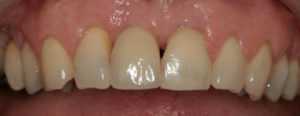
This implant will support the bone and prevent bone loss just like the natural teeth do.
